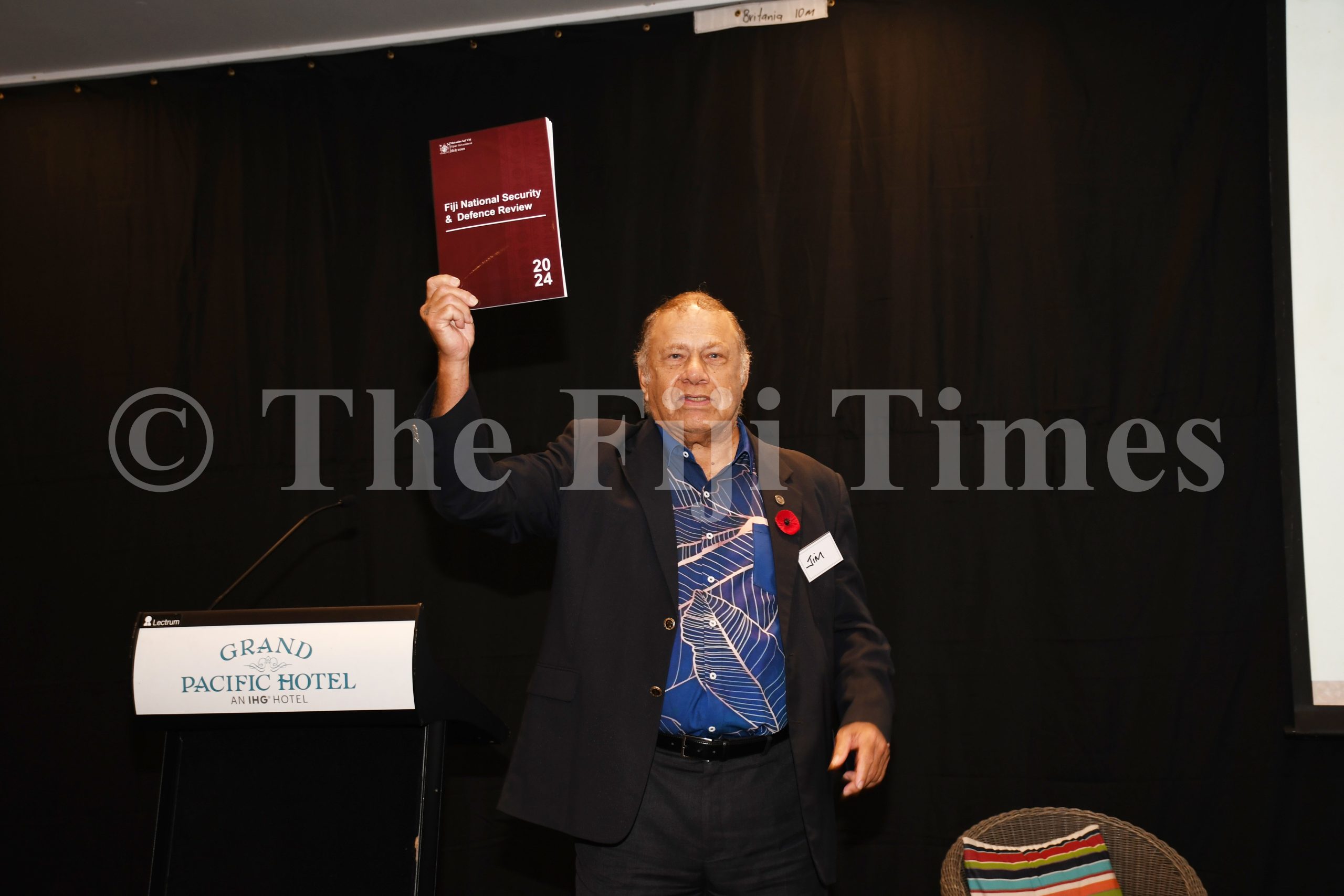A key point the newly released National Security and Defence Review (NSDR) raises, actually hinges on the issue of trust!
It’s a key word that embraces a lot of things we hope to see in the governance of our nation.
So when the report raises challenges, and points out the erosion of public trust, we can either sit back and ignore that, or the powers that be, those directly impacted by this, can sit up and do something about it!
Inconsistent government messaging and decision-making has created a perception of “self-serving leaders” and according to the report, is one of the reasons for the public’s loss of trust.
This was highlighted in the NSDR which was launched in Suva yesterday.
We learn that the document captured multiple concerns surrounding national security from stakeholders, where trust came up as a key theme.
According to the report, the message was clear during consultations, that trust is a vital element of Fiji’s national security architecture, and that every effort must be made to regain public trust in the Government and its vital institutions, especially the military and the police.
Community stakeholders also voiced their perceptions of government inefficiency, nepotism and corruption, which they attributed to a legacy of authoritarianism from the previous administration.
However, the report acknowledged submissions also highlighted the need for sensitivity in the Coalition Government’s decision-making and messaging.
It noted the decision to increase the salaries of parliamentarians, which was then followed later by the Government announcing a delay in welfare payments for the poor.
There was a public perception that the Government and its lawmakers were self-serving!
There was concern that community trust and confidence in the Government and public institutions were being undermined.
It suggests such distrust could lead to a decline in civic engagement. This trust deficit could also contribute to the fragility of Fiji’s democracy.
So, restoring and maintaining public trust requires lawmakers to address the root causes of these perceptions, it noted.
There is a need for parliamentarians to be transparent, accountable and genuinely focused on the wellbeing of the people.
In saying that, we have a report that highlights a widespread perception of government leaders being self-serving. It talks about perceived inefficiencies, and nepotism. The public’s confidence in key institutions like the police and the military has been eroded!
This is serious, and certainly not something we want.
As we noted above, this erosion of trust could impact civic engagement, and subsequently pose a risk to the stability of our democracy.
So we are stressing the need for us to restore public trust. We are stressing the need to recognise people, and communities as important partners in shaping our progress as a nation, and for unity!
We need accountability, transparency and the powers that be focusing on people, to restore confidence in our government institutions. The report points out some things we probably ignored, were probably de-sensitised to, or never gave much thought to. One thing’s certain, there is a lot of work to be done to regain trust!



